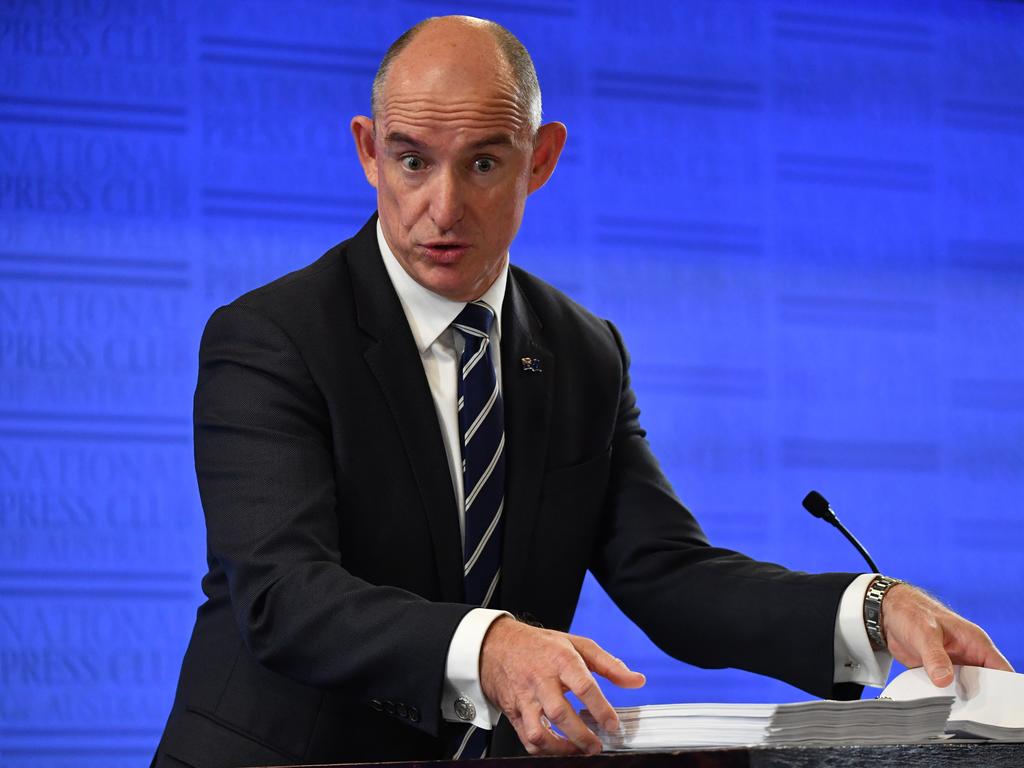Federal Court judge delivers blow to robo-debt system
Key component of the robo-debt system, estimated to have collected $660m, ruled unlawful.

The robo-debt recovery system — estimated to have collected up to $660m — could cost the commonwealth millions of dollars in repayments after the Federal Court ruled a key component of the enforcement program was unlawful.
A week after Government Services Minister Stuart Robert was forced to overhaul the robo-debt system and its use of data-matching targeting Australians with debts they didn’t owe, the Federal Court ordered the government to pay legal costs and interest to Victorian woman Deanna Amato.
READ MORE: Robo-debt scheme overhaul | Many welfare debts unfounded, others chased to grave | No humans at the wheel | Shorten pushes robo-debt class action |
In a landmark decision handed down on Wednesday, judge Jennifer Davies ruled that Centrelink, as the decision-maker, “could not have been satisfied that a debt was owed in the amount of the alleged debt” based solely on tax data.
Ms Amato, whose case was run by Victorian Legal Aid, had been ordered to pay back $2754 to the Department of Health and Human Services, which runs Centrelink. Her tax return of $1709 was subsequently seized.
The government, which has since refunded the tax return, was ordered by the court to pay $92.06 in respect to the period of time the commonwealth retained Ms Amato’s money.
“I had my money refunded to me, but I hope that others who have paid dodgy debts will also have a way to get their money back,” Ms Amato said.
“My robo-debt should never have occurred in the first place.
“I feel pleased to have gotten this outcome but it’s bittersweet to know so many people have paid money under this system.”
Civil Justice Access and Equity director Rowan McRae said the government had conceded the income-averaging process used to calculate the debts was unlawful.
Labor and the public service union led attacks on the debt-recovery system, which has been operating for about three years, declaring the scheme had targeted more than 600,000 Australians.
Senior legal figures also endorsed the court decision, issued by consent, declaring it “groundbreaking”. They described the robo-debt recovery system, which is also facing a potential class-action lawsuit, as “illegal” and a “form of blackmail”.
A spokesman for Mr Robert refused to confirm whether the minister’s office had sought legal advice in response to future cases being brought against it.
“The decision does not affect the government’s use of data matching between income reported to DHS and that reported to the ATO to seek clarification of income whilst receiving a welfare payment,” he said. “We will continue to use income averaging as part of a range of options to ask a welfare recipient to engage with DHS if there is a discrepancy.”
Under the old robo-debt system, the onus of proof was placed on the person receiving the debt notice, with limited ability to challenge claims made against them.
Mr Robert defended the government’s pursuit of Australians abusing social security support, with his spokesman saying taxpayers expected only eligible people to receive a share of payments worth $111bn each year.
Opposition government services spokesman Bill Shorten said Ms Amato’s case proved income averaging was unlawful and called on the Coalition to “pay back the money illegally taken from innocent Australians”.
Community and Public Sector Union national secretary Melissa Donnelly said the court decision brought the “entire robo-debt scheme into question”.
Ms Donnelly said Centrelink workers wanted clarity on how to respond to Australians who contacted them about robo-debts.
The Department of Human Services recently told staff not to rely on the robo-debt system and instead undertake further investigations to determine whether people might owe money.
Former Victorian chief crown prosecutor Gavin Silbert QC said he was “delighted” by the verdict.
“For three years I have been saying the debt recovery scheme was illegal and it was essentially a form of blackmail,” Mr Silbert said.
Emeritus professor of law at the University of Sydney, Terry Carney, said the decision was “ground breaking” and the robo-debt system lacked “any legal foundation”.





To join the conversation, please log in. Don't have an account? Register
Join the conversation, you are commenting as Logout